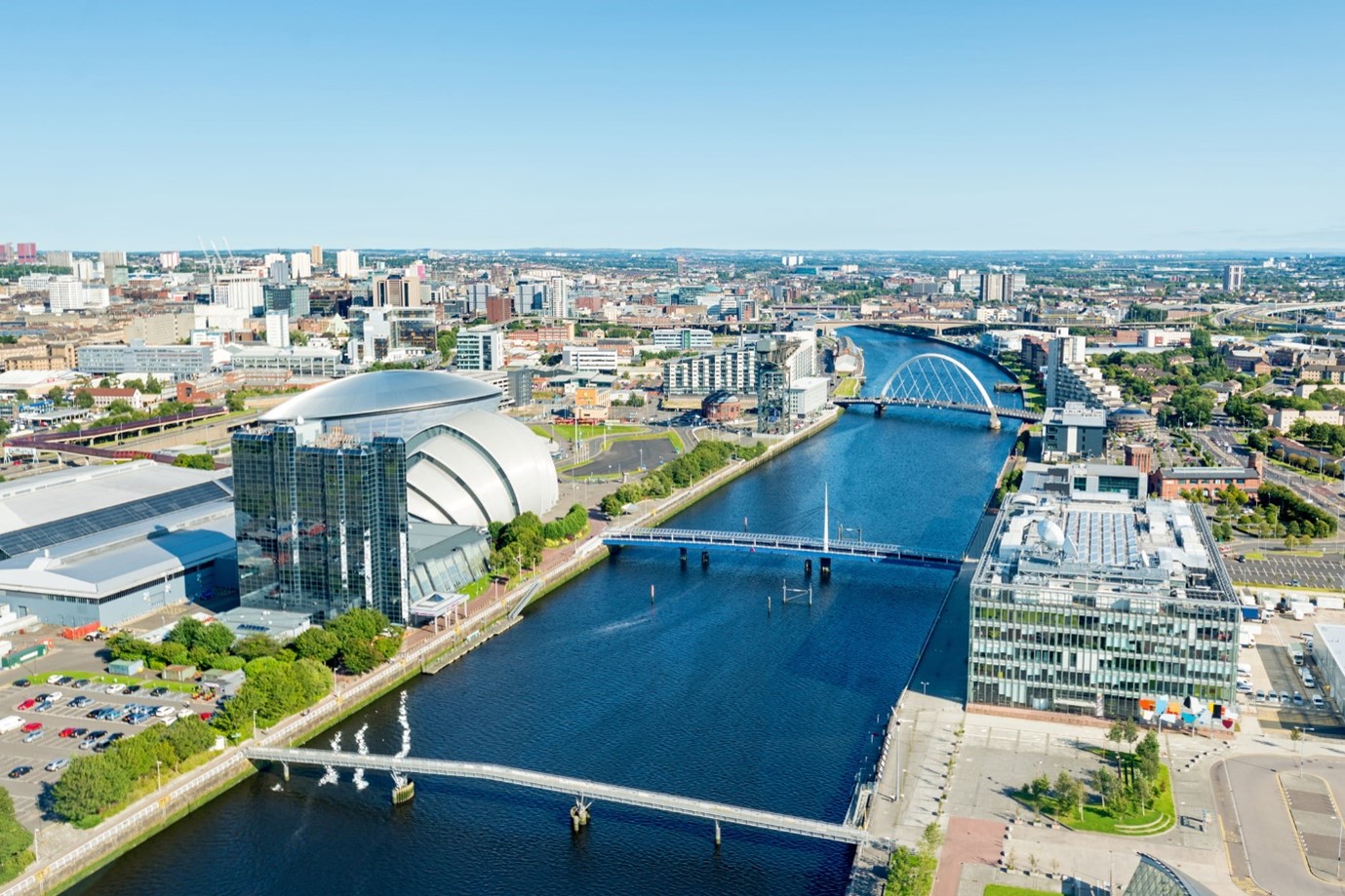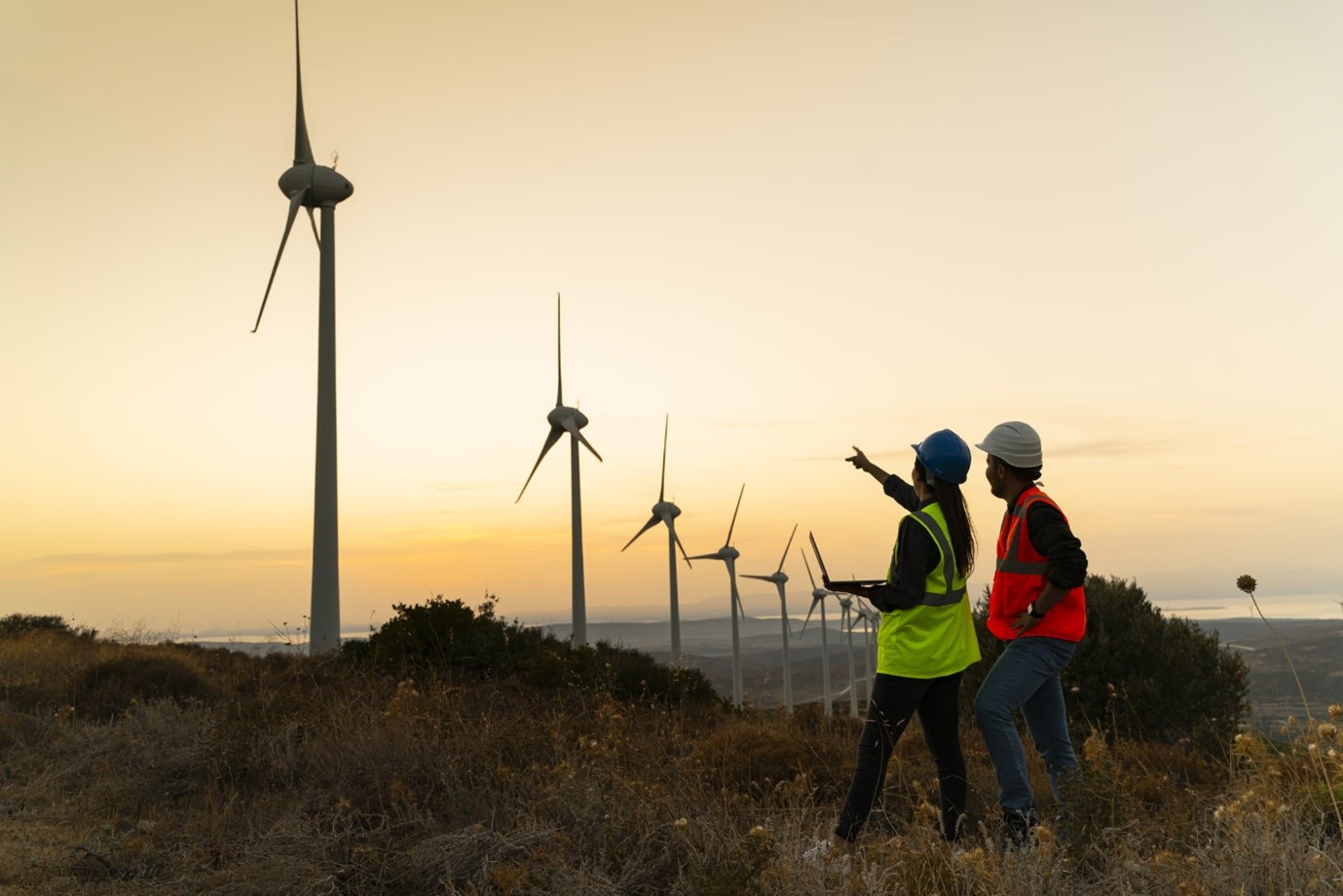Businesses in the UK have a vital role in ensuring we address the climate emergency and speed up the transition to net zero.
Within the last year, extreme weather events linked to climate change have increased at pace and we need to act now to minimise the impact of rising global temperatures.
Businesses have a responsibility to become leaders in sustainability, to uphold the Paris Agreement, and to minimise the global temperature rise to below 1.5°C.

Committing to net zero
Following COP26, the UK Government confirmed that by 2023, all firms will have to create and publish detailed plans on how they intend to hit climate targets to transition to net zero, in line with the UK’s 2050 target. Meeting the commitments has not yet been made mandatory, however plans must be published to increase transparency and accountability around sustainability.
COP26 welcomed new pledges from world leaders to phase out reliance on coal, transition to zero emission vehicles, fund clean energy access for developing countries, as well as commitments to end deforestation. A total of 450 firms controlling 40% of global financial assets – equivalent to £95 trillion – committed to measures to limit global warming to 1.5°C.
Organisations’ net zero plans will need to outline the changes to their business models, including skills, financial expectations and how they plan to support employees. Plans should help safeguard against greenwashing, a term used to describe the activities of companies that provide a misleading impression of how their products or processes are environmentally sustainable.

All businesses matter
Some of the world’s biggest companies have already valued their climate risks and are prioritising sustainability by implementing science-based net zero targets. These targets focus on rapid and deep emission cuts, near and long-term targets, no net zero claims until long-term targets are met, and making investments into reducing value chain emissions.
Smaller businesses have an important role to play too. According to the International Energy Agency, small and medium-sized enterprises (SMEs) account for at least 13% of global energy consumption and have a fundamental role in world economies. However, 70% of SMEs are struggling to turn their ambition into action. If SMEs can be supported to transition to renewable and low carbon energy systems, they could make savings of up to 30% of their total carbon consumption, using existing technologies and practices.
Sustainability goals need to be considered within every element of an organisation’s strategy including supply chain, employee welfare, and for services and products. Businesses must consider both short-term and long-term sustainability ambitions to support staff to integrate low carbon solutions into everyday processes.
A brighter future
As net zero plans progress, the economy of the future will increasingly be grounded in sustainability. Currently, 70% of global GDP is covered by net zero targets, compared to just 30% when the UK took on the COP26 presidency in 2020. COP26 resulted in some promising climate commitments. However, even if we revisit commitments at COP27 in 2022, we are still projected to exceed global temperature rises of 1.5°C, with possible devastating effects.
Businesses must act now to lead consumers towards more sustainable choices and reduce carbon emissions as quickly as possible.
-Dec-16-2021-10-43-06-49-AM.png)
Energy Saving Trust
Energy Saving Trust is an independent organisation – working to address the climate emergency. A respected and trusted voice on energy efficiency and clean energy solutions, they continue to work towards a smart, decarbonised, decentralised energy system.

-Dec-16-2021-10-43-06-49-AM.png)


